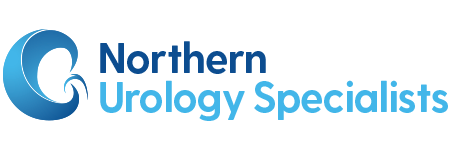Diet and Prostate Health
Background
There is greater than a 25-fold difference in age-adjusted incidence of prostate cancer between countries. Australia and New Zealand are amongst the highest and South- Central Asia the lowest. Migration studies where men moving from low-risk to high-risk countries had increased rates of prostate cancer compared to those in their native countries. Only some of the increased incidence may be explained by differences in prostate cancer screening practices.
Lifestyle and Dietary Measures
The relationship between obesity and the incidence of prostate
cancer is complex, but there is consistent evidence that obesity is associated with worse outcomes and increased mortality, especially in patients with aggressive disease. Men suffering from two or more health problems linked to metabolic syndrome also have an increased risk of aggressive prostate.
Meat and animal products
- A diet rich in complex carbohydrates and lower in protein and fat is associated with a 60 percent to 70 percent reduced risk of prostate cancer. In one study, a fibre-filled diet reduced the risk of aggressive prostate cancer by 70 percent to 80 percent.A case-control study focused on aggressive prostate cancer (Punnen S, et al. Impact of meat consumption, preparation, and mutagens on aggressive prostate cancer. PLoS One. 2011;6:e27711) found that high consumption of processed meat, including ground beef, was associated with aggressive prostate cancer. Ground beef showed the strongest association. Well-done meat conferred a higher risk of aggressive prostate cancer. Interestingly, the consumption of rare or less cooked meat was not associated with an increased risk of prostate cancer.
Physical activity
- No consistent evidence that physical activity protects against prostate cancer
Sex
- No conclusive evidence that frequent ejaculation reduces the risk of prostate cancer. A long period of abstinence may result in congestion of the alkaline fluid. The inflammation of the prostate gland may result.
Medications and Dietary Supplements
- Statins – Emerging evidence that statins may indeed reduce the risk of death from prostate cancer, but likely little effect on whether or not a man develops prostate cancer in the first place.Canadian research published in the Journal of Clinical Oncology (Eberg M, Benayoun S, et al. (2014) found that men who used statins after a diagnosis of prostate cancer had a 24% decreased risk of death from the disease compared to men who did not take statins. Statin use prior to a diagnosis of prostate cancer was even more protective to the men. Pre-diagnostic statin use reduced the men’s risk of death from prostate cancer by 45%, and conferred a 34% reduced risk of death from any cause, compared to men not taking statins.
- Saw palmetto for bph symptoms controversial as efficacy is close to placebo
- Green tea may protect against advanced prostate cancer. Need 6 cups per day to see an effect (Henning SM, Wang P, Heber D. Chemopreventive effects of tea in prostate cancer: green tea versus black tea. Mol Nutr Food Res. 2011 Jun;55(6):905-20.)
- Fish oil – a national census of medicines use in Australia estimated that 1 in 4 people over 50 years of age regularly take omega-3 fish oil supplements.
One study (Plasma Phospholipid Fatty Acids and Prostate Cancer Risk in the SELECT TrialJ Natl Cancer Inst (2013) 105 (15): 1132-1141.) found men with high levels of fish oil in their blood comparatively have a 71 percent increased risk to develop a more aggressive form of prostate cancer and a 43 percent higher comparative risk to develop slow growing prostate cancer. These results were considered controversial and have not been replicated in other studies since, - Lycopene is found cooked and processed tomatoes, such as tomato sauces, soups, purees and pastes, are a better source of lycopene than fresh tomatoes. Any association with a positive action against prostate cancer remains controversial.
- Pomegranate – one small study found that drinking a glass of concentrated
pomegranate juice every day slowed down the growth of cancer in men whose prostate cancer had come back after their first treatment - Isoflavones are organic compounds that occur naturally in some foods, especially legumes such as soybeans. It has been proposed that the high intake of soy-derived food products and the metabolism of the isoflavones they contain is one of the factors which accounts for the significant difference in the incidence of prostate cancer between Asian and European/ North American populations.
- Vitamin E – the SELECT clinical trial of 35,000 men that was planned for 7–12 years was stopped after 5.5 years due to lack of efficacy for risk reduction. (Lippman SM, Klein EA, Goodman PJ, et al. Effect of selenium and vitamin E on risk of prostate cancer and other cancers: the Selenium and Vitamin E Cancer Prevention Trial (SELECT). JAMA 2009;301:39-51.)The data did reveal a trend that suggests there may be an increased prostate cancer risk among men receiving 400 IU/ day.
- Selenium – no significant risk reduction in SELECT trial as with vitamin E
- Vitamin D – a study found that among men who tested positive for cancer after their biopsies, those who also had very low levels of vitamin D had greater odds of more advanced and aggressive cancers than those with normal levels. Vitamin D is found in salmon, mackerel, mushrooms, egg yolks, milk, and is also found in supplement form. Sunlight also triggers the body to produce vitamin D.
- Zinc – high supplementation with zinc, more than 100 mg/day, increased the incidence of prostate cancer in men more than 2-fold.
Take Home Messages
- There is no proven association between any specific diet and
prostate cancer risk. - There is no evidence to support recommendations for any dietary supplements to reduce prostate cancer risk.
- A healthy diet with a high intake of vegetables and fruits, a moderate intake of fat, and which avoids high energy foods and excessive meat and dairy products, is recommended.
A simple mantra advocated by the best known Guru of prostate health, Dr Mark Moyad “Heart healthy = Prostate healthy”

